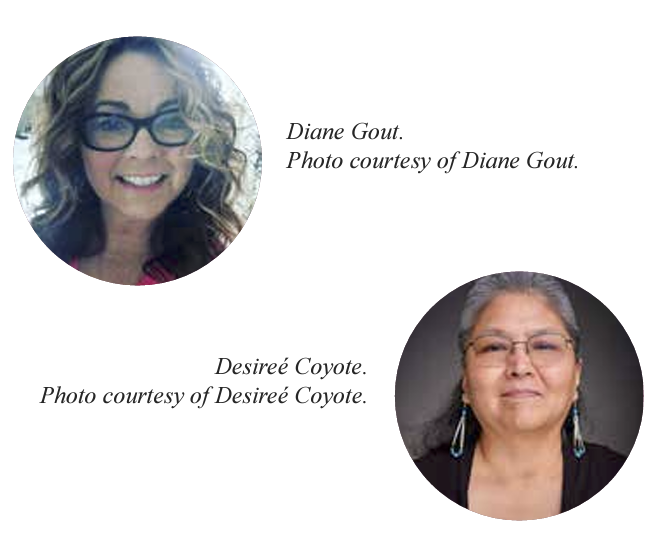Tribal Community Feedback Strengthening Response to Violence Against Women
“The silent are screaming! It is a blessing that they are able to pull out, but they are walking in deep hopelessness. They are silently wondering where they can go, what can they do, who can they trust. Even the parents. They are living alone in their silent fears. That is why these victims are trying to decide if they should kill themselves.”
— CTUIR TRIBAL COMMUNITY MEMBERS
On December 31, 2023, the Increasing Access to Services by Sexual Assault Survivors: The Voices and Perspectives of a Tribal Community project reached its conclusion. This project initiated the critical journey of tackling the pervasive issues of sexual violence within a Tribal community. It laid the groundwork for cultivating a more trusting environment, directly confronting the existing gaps and barriers, and establishing pathways for healing and resilience.
This was a project not only desperately needed but also long hoped for. The Family Violence Services (FVS) with the Confederated Tribes of the Umatilla Indian Reservation (CTUIR) has long recognized the challenges faced by their people, including the scourge of sexual violence. CTUIR, understanding that systemic and community change must come from within, approached the issue with the knowledge that, as a sovereign Tribal Nation with self-governance, meaningful changes in safety, protection, accountability, and healing can only emerge through the collective voices and actions of the community.
With nearly two decades of relationship-building, FVS, under the leadership of Desireé Coyote, partnered with Diane Gout, Ph.D., owner of Gray O.A.K., LLC, to design and implement a truly community-based, culturally relevant project. This project aimed to provide a deeper understanding of the factors contributing to the underreporting of sexual violence and sexual assault within CTUIR. The initiative focused on two primary areas:
- Needs Assessment. A comprehensive assessment was conducted to understand the community’s needs in addressing sexual assault, sexual violence, and sex trafficking. This process involved gathering insights from various stakeholders, or “rightsholders,” within the Tribal community at multiple stages throughout the project. A community event held midway through the project celebrated the community’s involvement and provided additional insights to address the findings from the needs assessment.
- Strategic Planning. A strategic plan was developed to guide the expansion of victim services programs. The plan, which places the community at the center of the work, addresses barriers to reporting and accessing services and proposes methods for improving coordination with relevant partners.
The project received widespread attention, including significant coverage from the East Oregonian, which published a “centerpiece” article about the project and community event, along with a series of feature stories on Indigenous survivors: bit.ly/4dijSXO.
The first of the feature stories focused on Coyote and her efforts to empower survivors of violence: tinyurl.com/desiree-coyote.
There is considerable literature on conducting community-based, participatory, and culturally relevant evaluations, but actualizing this work requires an immense amount of time and intentionality. Conducting a needs assessment is not merely about creating and administering a survey. It is not an extractive or one-and-done process. Instead, it demands a commitment to continuous and collective engagement with the Tribal community.
This multifaceted process began with a partnership rooted in transparency and respect between FVS and Gray O.A.K., LLC. It honored the Tribal community and Tribal data sovereignty, manifesting for years into what this project could and should become. The work was not about gaining recognition, responding to another RFP, or fulfilling a grant deliverable. It was not performative. Instead, it was about laying the groundwork for the essentials needed to address critical issues.
For almost three years, the project involved advisory board meetings, administering community and Tribal employee surveys, conducting interviews and focus groups with community members, hosting a community event, keeping departmental and Tribal leadership informed at critical junctures, and facilitating multiple strategic planning sessions.
At the heart of this work was the community's bravery and trust. Their willingness to share their stories and open their hearts was an act of profound courage. This bravery not only allowed the project to capture the depth of the challenges they faced but also set a powerful precedent for accountability and change. By voicing their experiences and concerns, the community created a ripple effect that demands attention and action, ensuring that the necessary changes will not only be discussed but implemented.
While the grant has ended, the work continues. The Tribe has held several sessions to discuss the next steps, and changes are beginning to take place as a direct result of this project's efforts. Once finalized, the report was printed and shared with all Tribal member households, programs, and departments. FVS has since hired a child youth specialist, a sexual assault specialist, and a violence prevention specialist to assist in strategic project implementation. It can’t be emphasized enough that the community's courage in sharing their truths has been instrumental in driving these changes and will continue to be the cornerstone of ongoing progress.
For more information, please contact dgout@gray-oak.com.





